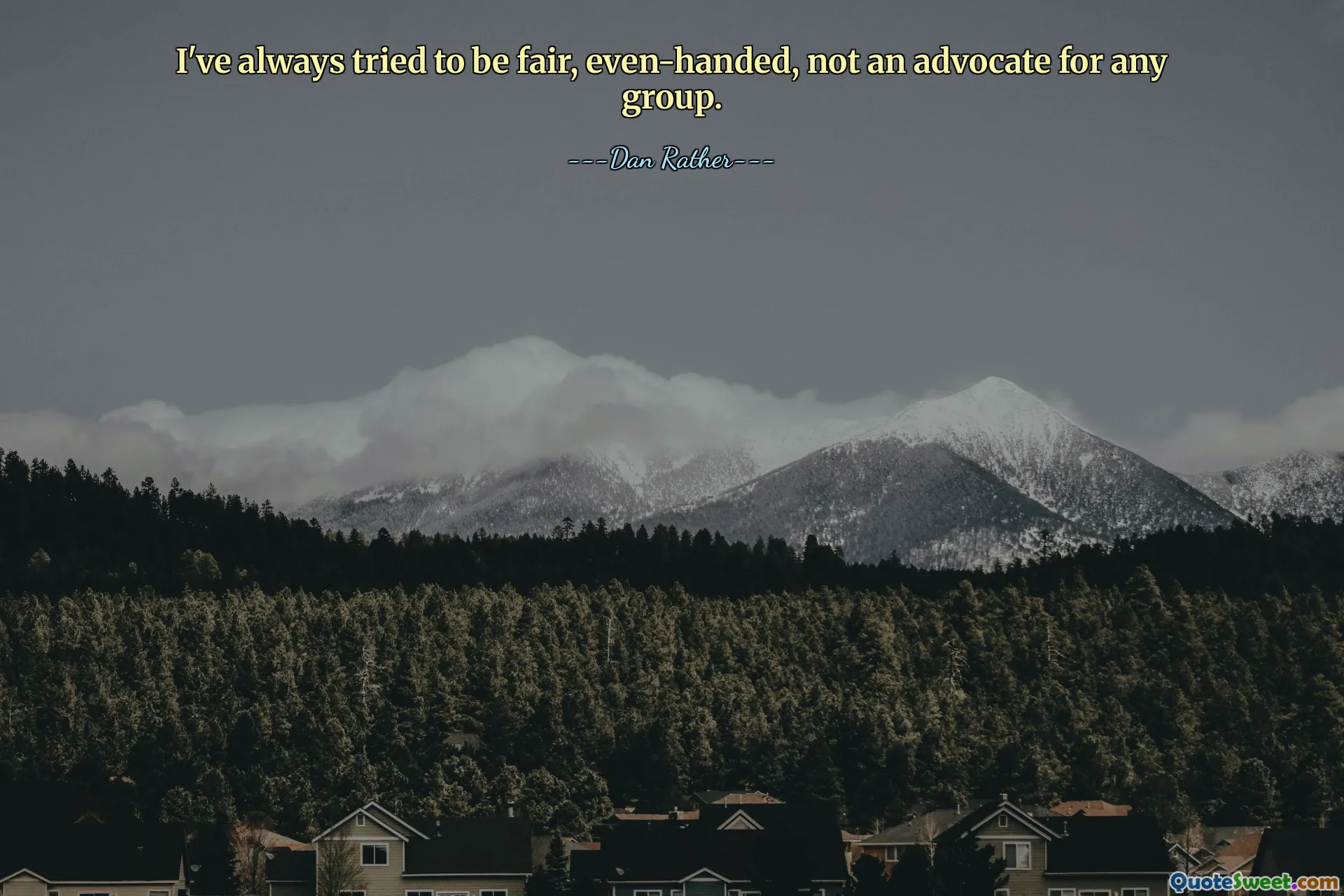
I've always tried to be fair, even-handed, not an advocate for any group.
This quote underscores the value of impartiality and fairness in one's actions and judgments. Striving to be even-handed suggests a commitment to impartiality, fairness, and objectivity, especially when navigating complex social or political issues. In a world often divided by strong opinions and biases, the willingness to approach situations without favoritism can serve as a foundation for trust and integrity. Such an attitude promotes open-mindedness, encourages balanced perspectives, and helps foster a dialogue rooted in respect for all parties involved.
The concept of not advocating for any particular group, but maintaining neutrality, may sometimes be perceived as indifference or detachment. However, it can also represent a genuine effort to listen fairly and consider all viewpoints before forming an opinion. It recognizes the importance of understanding diverse experiences and resisting the temptation to prioritize one group's interests over another unjustly.
Practicing fairness and even-handedness demands self-awareness and humility. It challenges individuals to examine their biases and avoid superficial judgments. By avoiding advocacy for one side exclusively, a person can serve as a mediator or a conduit for truth and justice that is informed by facts rather than emotion or prejudice.
In various fields—politics, law, journalism, or personal relationships—these qualities uphold the principles of equity and justice. They urge us to weigh evidence objectively, listen actively, and approach conflicts with a mindset aimed at understanding rather than winning. Ultimately, embodying such values contributes to a more equitable society where diverse perspectives are acknowledged and respected.









